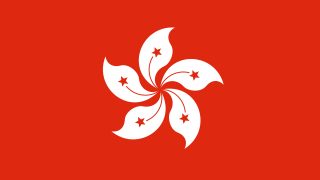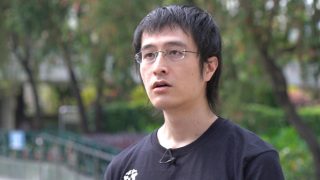In the three years since the death in prison of Nobel peace laureate Liu Xiaobo, the ruling Chinese Communist Party has succeeded in suppressing free speech and public dissent to unprecedented levels, fellow activists said on Monday.
Activists’ group the Liu Xiaobo Association said that even Liu didn’t imagine quite how fast Beijing would move to exert direct control over Hong Kong, where a draconian security law was imposed on the city on June 30.
“Liu Xiaobo expressed his love for Hong Kong many times during his lifetime,” the group said in a statement on Monday, the third anniversary of Liu’s death from advanced liver cancer at the No. 1 China Medical University Hospital in the northeastern city of Shenyang, under tight security.
At the time of his death at the age of 61, Liu had been serving an 11-year jail term for “incitement to subvert state power,” linked to his online writings promoting democracy and constitutional government.
That charge, which is typically used to target peaceful critics of Beijing, was recently introduced into Hong Kong despite promises that the city would retain a separate legal jurisdiction and traditional freedoms of speech and association after the 1997 handover to China.
Liu’s best-known work as co-author was Charter 08, a document that was signed by more than 300 prominent scholars, writers, and rights activists around the country.
In the document, the former literature professor called for concerned Chinese citizens to rally to bring about change, citing an increasing loss of control by the Communist Party and heightened hostility between the authorities and ordinary people.
Liu’s late diagnosis, and the refusal of the ruling Chinese Communist Party to allow him to go overseas on medical parole, sparked widespread public anger.
“Hong Kong was the last bastion of freedom of speech and the only Chinese city where one could still commemorate the 1989 Tiananmen massacre,” the statement said.
“It must have been hard for Liu to predict quite how fast the Communist Party would colonize Hong Kong and make it like mainland China,” it said.
A Charter 08 co-author in the northern Chinese city of Taiyuan who declined to be named, said that many people still remember Liu silently in China.
“I don’t know much about Liu Xiaobo,” the man said. “Lots of people know his name, of course.”
“Today, on the third anniversary of his death while serving time as a political prisoner, I feel as if there is no hope, no future, in this political environment,” he said.
‘An erudite, gentle man’
Liu’s friend and fellow activist Ma Qiang said Liu had once controversially written that China could do with “300 years of colonization,” so it could catch up with Hong Kong politically.
“What Xiaobo actually said was that Hong Kong, having once been a British colony, had ended up with a social structure and civic consciousness that was completely different to that of mainland China,” Ma said.
“The civic consciousness of the people of Hong Kong formed a modern civilization that became a part of international mainstream,” he said. “China, however, remained stuck with its [older] class system and its agricultural system, and couldn’t extricate itself.”
“I met Liu Xiaobo in about 1999, when he had just gotten out of ‘re-education through labor,’ when a mutual friend asked for my help installing his computer,” Ma recalled.
“He was the quintessential scholar; an erudite and gentle man, who also had a sense of humor. It was a pleasure to interact with him,” he said.
Beijing-based rights activist Hu Jia said people might manage to commemorate Liu, whose ashes were buried at sea by the authorities in a secretive ceremony, by going to the seashore, but would need to be careful not to be caught, as previous seashore commemorations had resulted in detentions by the state security police.
“The main thing is a seashore memorial,” Hu told RFA. “If you live in mainland China, you could do that alone, although on a sensitive date like today, it’s possible that there will be police patrolling the seashore in [the northeastern city of] Dalian.”
“Even if you post something to your WeChat friends, you could be targeted by the authorities,” he warned. “I saw that someone had posted today without mentioning his name; they just talked about a third anniversary, a seashore offering, a candle, and an empty chair.”
Long, nonviolent struggle
Liu was awarded the 2010 Nobel Peace Prize “for his long and nonviolent struggle for fundamental human rights in China” in a decision that infuriated Beijing, which said he had broken Chinese law. During the Nobel Peace Prize ceremony in Oslo, he was represented by an empty chair.
Beijing cut off trade ties with Norway in the wake of the award, and placed Liu’s wife, the poet and photographer Liu Xia, under house arrest for eight years from the date the award was announced.
Liu Xia, who has been living in Germany since 2018, has suffered from severe mental health problems as a result of her treatment at the hands of the authorities.
Liu said in 2019 that she and Liu Xiaobo had little chance to speak to each other in the weeks before his death, and that she was having trouble accepting his loss.
Reported by Qiao Long for RFA’s Mandarin Service. Translated and edited by Luisetta Mudie.
Source: Copyright © 1998-2016, RFA. Used with the permission of Radio Free Asia, 2025 M St. NW, Suite 300, Washington DC 20036. https://www.rfa.org.



